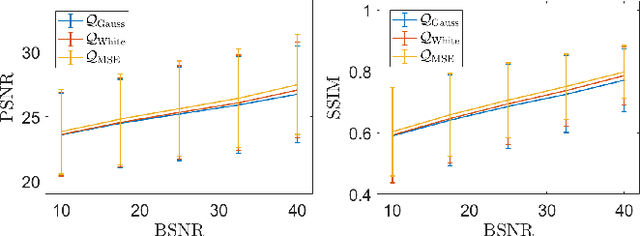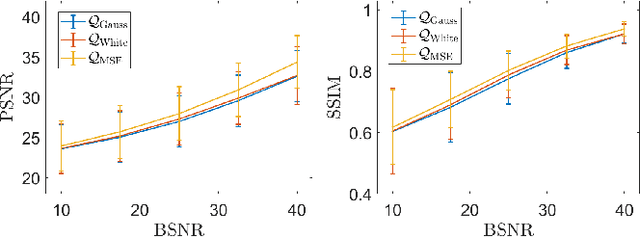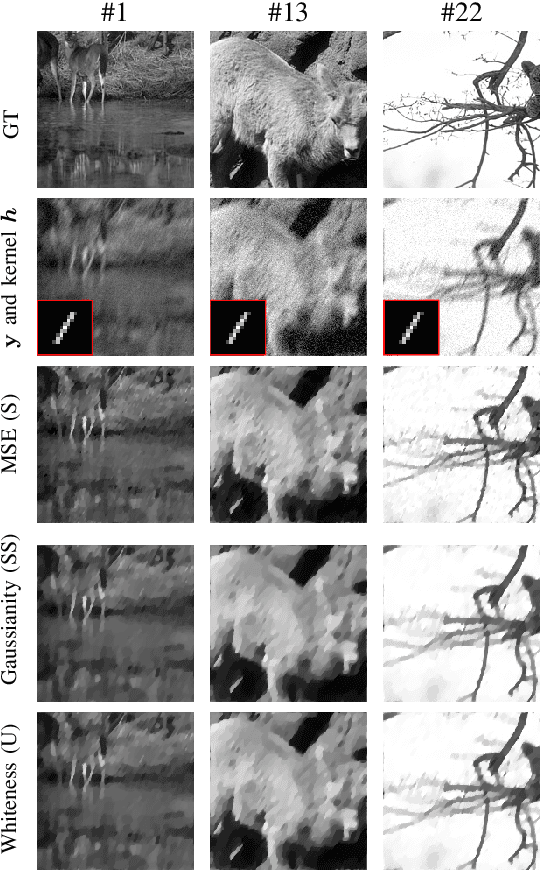Whiteness-based bilevel learning of regularization parameters in imaging
Paper and Code
Mar 10, 2024



We consider an unsupervised bilevel optimization strategy for learning regularization parameters in the context of imaging inverse problems in the presence of additive white Gaussian noise. Compared to supervised and semi-supervised metrics relying either on the prior knowledge of reference data and/or on some (partial) knowledge on the noise statistics, the proposed approach optimizes the whiteness of the residual between the observed data and the observation model with no need of ground-truth data.We validate the approach on standard Total Variation-regularized image deconvolution problems which show that the proposed quality metric provides estimates close to the mean-square error oracle and to discrepancy-based principles.
 Add to Chrome
Add to Chrome Add to Firefox
Add to Firefox Add to Edge
Add to Edge